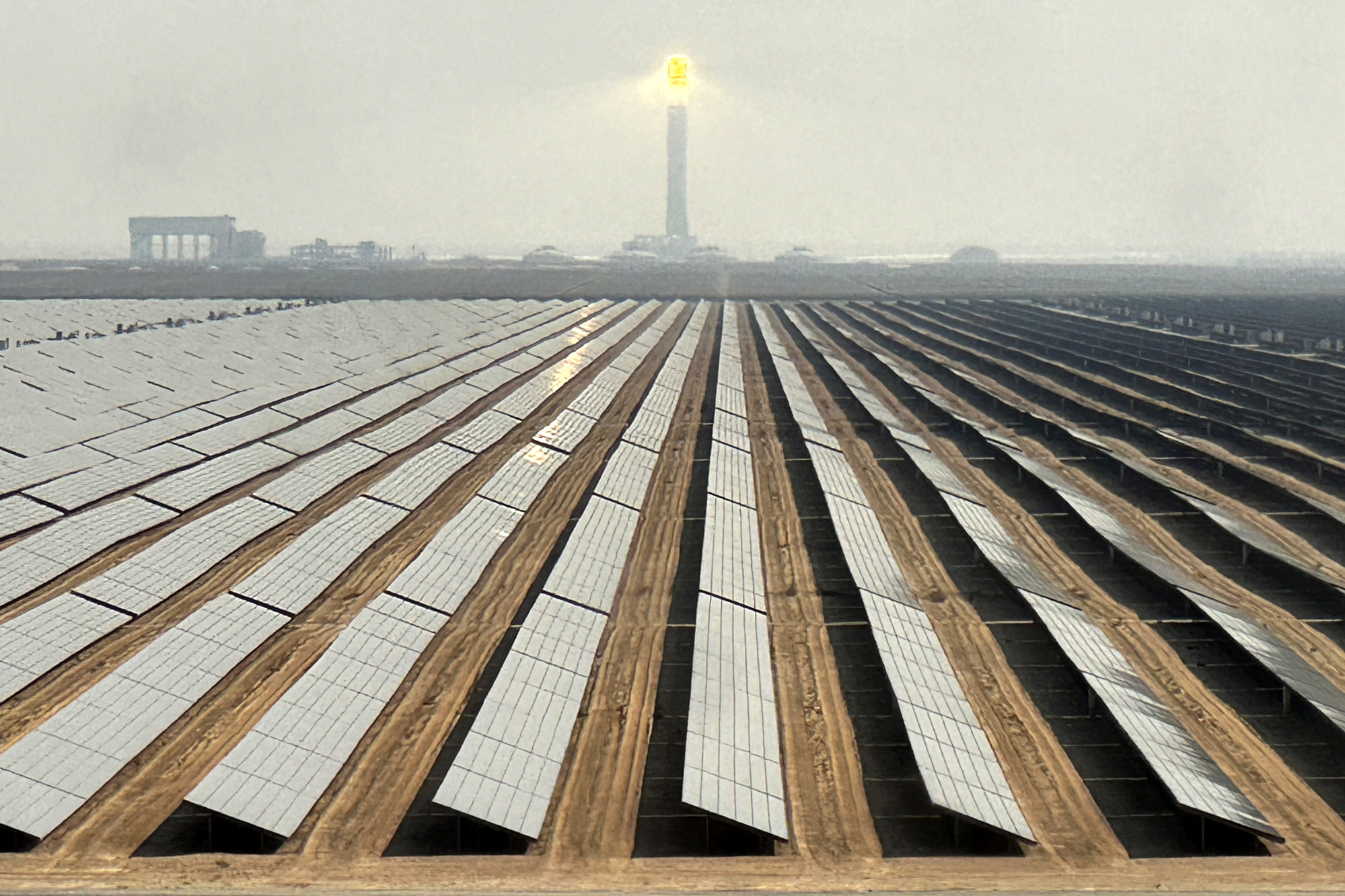Can Cop28 elbow out fossil fuels amid ‘aggressive’ plan to triple renewable energy by end of decade?
- Climate activists say increasing renewable energy is likely to push fossil fuel producers to expand their markets under the pretext of energy security
- Targeting more renewable energy without limiting fossil fuel production is likely to slow the clean energy transition, a goal of many fossil fuel producers
“For some governments, it is a loophole where they are going to say, ‘We are going to aggressively pursue renewable energy’. But the bit they don’t say is that’s in addition to fossil fuels,” said Polly Hemming, director of the Australia Institute’s Climate & Energy programme.
‘Unacceptable’ G20 declaration: ‘boldest’ steps needed to tackle climate change11 Sep 2023
Climate activists say increasing renewable energy will not automatically push out fossil fuels, which have been the biggest contributor to global warming. Instead, fossil fuel producers are likely to step up their backchannels and expand markets under the pretext of energy security.
Fossil fuel lobbyists will be “hard at work at the Cop space” trying to showcase ways to address climate change concerns without limiting fossil fuel production, Sunwoo Lee, head of international climate unit at South Korean non-profit group Solutions for Our Climate, said in a webinar by non profit organisation Global Gas & Oil Network last week.
These would likely include solutions such as carbon capture and storage technology “which a number of scientific reports have dismissed”, she said. Carbon capture technology stores emissions from industrial processes and burning fossil fuels deep underground.

Targeting more renewable energy without restricting fossil fuel production is likely to slow the clean energy transition, climate activists say, but it is a goal many of the biggest fossil fuel producers are pushing for.
Grim tidings
The region’s renewable energy potential is 40 to 50 times higher than the present electricity capacity, “but one of the challenges is that most of these countries are also pursuing gas expansion”, said Gerry Arances, executive director of the Center for Energy, Ecology and Development in the Philippines.
Southeast Asian nations have embarked on natural gas projects because it is perceived to be a relatively cleaner form of energy – generating about half the amount of carbon emissions as coal – but its production also spews methane, Arances said.
If you look at the whole value chain, the case for rejecting a ramp up in natural gas production should be a “no-brainer”, he added.

The International Energy Agency said in a report released earlier this month that demand for coal, oil and natural gas is set to peak this decade, in part because the impact of record-breaking heatwaves and climate-induced disasters are becoming hard to ignore.
But analysts warned against complacency when it came to fossil fuel production.
“We can’t solve the climate crisis by adding renewable energy on top of new fossil fuels – we need to rapidly replace and phase out all fossil fuels, including gas,” said Kelly Trout, research director at Oil Change International.
The US has built massive, unnecessary infrastructure to export gas, which will cause a glut of supply that is “incompatible with a liveable planet”, he said, highlighting findings from the IEA report.
Production of renewable energy may also face greater competition on another front – cheaper crude oil.
The focus of the Cop28 summit should be on providing policy and financial support to emerging nations to meet their huge energy needs, said Avinash Persaud, emeritus professor at Gresham College in England.
“The real issue is that there has been a massive increase in the need for energy from the Global South. If that is in fossil fuels, we have a real problem,” he said. “So let’s focus and make sure that any new facilities there are renewable energy-based, then we won’t have a huge impact.”

No comments:
Post a Comment